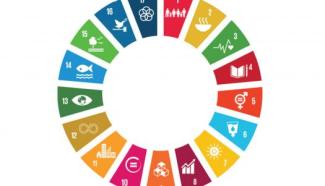Women in developing countries benefit from digital platforms and e-commerce, yet a persistent digital gender gap and high levels of informality continue to exclude many from emerging digital opportunities.
UN DESA DISD Products
Using the latest data and estimates, the annual Sustainable Development Goals Report provides an overview of the world’s implementation efforts to date, highlighting areas of progress and areas where more action needs to be taken to ensure no one is left behind.
The SDG Acceleration Actions help inspire and mobilize actions around the world to promote the implementation of the SDGs, as well as build resilience and bring inclusive recovery in the context of new realities post COVID-19.
For the Decade of Action, UN DESA is mobilizing to overcome COVID-19 and other global crises, and preparing for future challenges to help Member States realize the 2030 Agenda.
From presidents to grassroots activists and from top UN officials to sport stars, UN DESA’s SDG Blog is where you can find every perspective on the Sustainable Development Goals.
 Welcome to the United Nations
Welcome to the United Nations











